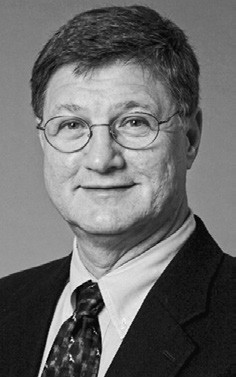Viewing sacrifices in a whole new light
Whenever we start reading the Book of Leviticus, or Vayikra, as it is known in Hebrew, I begin to feel guilty. Vayikra is dominated by chapter after chapter that define the laws of sacrifices. As a liberal Jew, the idea of sacrifices is hard for me to wrap my head around.
I understand that at the core of these rituals is the deep human desire to come as close as possible to divinity. In English, the verb “to sacrifice” means “to make sacred,” while the Hebrew word “korban” or “le’hakriv,” comes from the same root as “to come near, to draw close, to approach.”
Still, the extensive descriptions of sacrifices, the killing of animals, the sprinkling of blood, and the many details about priestly behavior leaves me confused and often alienated.
If that is how you also feel, take comfort: you are not alone. Ambivalence about the sacrificial cult permeates Jewish thought from the time of the ancient pre-exilic prophets and the Psalms to the rabbis of the Talmud and midrash, the major medieval philosophers and contemporary religious thinkers. It has left its imprint on our liturgy and is still the subject of heated debates.
The words of the prophet Amos (7th-century B.C.E.) regarding the ancient temple rituals are illuminating and resonate with my sense of Judaism and its demand to work for a world of justice and equity.
“I hate, I despise your feasts, and I take no delight in your solemn assemblies. If you offer me burnt offerings, or your meal offerings, I will not accept them ... but let justice well up as waters, and righteousness as a mighty stream.” (Amos 5:21-24)
Given these strong sentiments and the contradictory attitudes toward sacrifices throughout Jewish history, what do we do with the many chapters in the Torah and the massive amount of writing devoted to these laws and practices?
We are fortunate to be part of a tradition that is grounded in interpretation rather than a literal reading of Torah. The genius of Judaism was to embrace midrash, an interpretive act that seeks answers to religious questions (both practical and theological) by plumbing the meaning of the words of the Torah. Midrash responds to contemporary problems and crafts new stories, making connections between new Jewish realities and the unchanging biblical text. This flexibility has enabled Judaism to survive and flourish as a religious civilization throughout the ages.
So, how might we read Vayikra from a midrashic, interpretive point of view? Here is one example from the second verse of Vayikra (Leviticus 1:2), which is addressed not to the Levites and priests, but to the entire people.
“Speak to the Israelite people, and say to them: When any of you presents an offering of cattle to the Lord, he shall choose his offering from the herd or from the flock.” But, on a closer look, the Hebrew could be literally translated as, “if any person brings of yourselves a sacrifice unto the Lord, etc.” Not “any of you” but “bring of yourselves” an offering. This somewhat awkward turn of phrase gives room to several interesting interpretations, all sharing a common theme – that Torah demands that the sacrifice be part of yourself.
When, by the grace of God, one is allowed to substitute the sacrifice of an animal for the sacrifice of oneself (as happened to Isaac, who remained the prototype of an offering), one should bring it “from the herd or from the flock.” Further, when making an offering, one must not bring something that does not really belong to him, not a wild beast, or “surplus” materials, but a bull or a goat that comes from one’s own flock.
A person’s riches were measured in ancient times by the size of their herd. Sheep and cattle were money to them. God does not want a sacrifice that does not rightfully belong to you personally, or which you do not see as if you yourselves were vicariously offered on the altar.
In other words, when one makes an offering, one must teach herself to give away that which she needs for herself, not just what is surplus or can be taken as an income-tax deduction.
I believe that the book of Vayikra, on closer investigation, can teach us a lot about our ability and obligation to lives of holiness.
Rabbi Alan Flam, who recently retired, is on the Steering Committee of the Interfaith Coalition to Reduce Poverty and is the organizer and rabbi for Soulful Shabbat, a Saturday morning service that emphasizes silence, chanting, gentle stretching and meditation along with traditional davening and Torah study. He can be reached at alan.flam@gmail.com.








